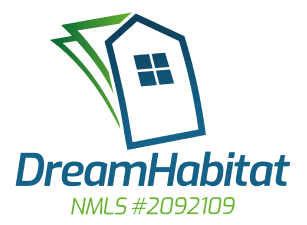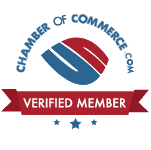Unlock homeownership freedom with flexible terms and competitive rates through Conventional Loan.
Conventional Loan

What is a Conventional Loan?
Conventional Mortgage Loan

A conventional mortgage is a loan facility that fulfills the requirements set by Fannie Mae or Freddie Mac. Fannie Mae and Freddie Mac are government-sponsored enterprises that buy mortgages from lending institutions and sell them to investors.
Who is it for?
Middle-income Americans with a stable income and good credit rating looking for affordable housing with low down payments.

Requirements
Best reverse Conventional Loan
A minimum credit score of 620.
A debt-to-income ratio lower than 43% (can be higher, depending on qualifying factors).
A down payment of at least a 3%.
Frequently Asked Questions
Conventional Loan Mortgage

What Is a Conventional Loan?
A conventional loan refers to a mortgage loan that lacks backing from a government agency. Unlike FHA, VA, and USDA loans, which offer certain advantages, conventional loans are available in various forms and sizes. However, despite not providing some of the benefits associated with government-backed loans, conventional loans continue to be the most prevalent type of mortgage loan.
What are the benefits of a conventional loan?
Conventional loans have several advantages, including:
Lower interest rates: Conventional loans typically have lower interest rates than government-backed loans.
More financing options: Conventional loans are available with a wide range of terms and conditions, giving you more options to customize your loan.
Less restrictions: Conventional loans have fewer restrictions than government-backed loans, which can make them a better option for borrowers with less-than-perfect credit.
What are the requirements for a conventional loan?
To qualify for a conventional loan, borrowers must meet the following requirements:
Credit score: Borrowers must have a minimum credit score of 620 to qualify for a conventional loan with a 20% down payment. Borrowers with a credit score of 580 to 619 may qualify for a conventional loan with a 15% or more down payment.
Income: Borrowers must have sufficient income to afford the monthly mortgage payments.
Assets: Borrowers must have sufficient assets to cover the down payment, closing costs, and other expenses.
Debt-to-income ratio: Borrowers must have a debt-to-income ratio (DTI) of no more than 50%.
How do I get a conventional loan?
To get a conventional loan, borrowers must apply for a loan from a lender. The lender will review the borrower’s financial information to determine if they qualify for a loan. If the borrower qualifies, the lender will issue a loan commitment.
Are you considering a Conventional Loan for your home purchase? View all the options and benefits of conventional mortgages, which are the most common type of home loans. Unlike FHA loans, conventional mortgages are not backed by the government, making them suitable for those with good credit.
When investing in real estate, understanding loan rates, down payment requirements, and the loan amount is crucial. Use our online calculator to determine your monthly payment, taking into account taxes and insurance. Conventional loans typically have higher down payment requirements than FHA loans, but they offer more flexibility in terms of property types and loan limits.
For first-time homebuyers, conventional loans are a popular choice. Explore the best mortgage rates and learn about credit score requirements. The loan limits for conforming conventional loans vary by location and are set by the Federal Housing Finance Agency (FHFA).
At Dream Habitat, we provide comprehensive information on conventional loans, helping you make informed decisions about your home financing. Our expert team can guide you through the process, ensuring you get the best deal tailored to your financial situation.
Invest wisely in your home with a Conventional Loan. View all the details you need to know, from credit repair to the intricacies of mortgage-backed securities. Trust us to be your source for reliable information on conventional home loans.
How a Conventional Mortgage Works?
A conventional mortgage works as follows:
1. Eligibility: To qualify for a conventional mortgage, borrowers typically need a good credit score, stable employment, and a low debt-to-income ratio. Lenders assess the borrower’s financial profile to determine their eligibility for the loan.
2. Down Payment: Conventional mortgages generally require a down payment, which is a percentage of the home’s purchase price paid upfront. The amount required can vary but is typically higher compared to government-backed loans. A down payment of at least 20% of the purchase price can help avoid private mortgage insurance (PMI).
3. Lender Selection: Borrowers can choose from various lenders, such as banks, credit unions, or mortgage companies, to apply for a conventional mortgage. It is advisable to shop around and compare offers from different lenders to find the most favorable terms and interest rates.
4. Loan Terms: Conventional mortgages offer a range of loan terms, including 15-year and 30-year fixed-rate options. The interest rate and monthly payments remain consistent throughout the term of the loan, providing predictability for budgeting.
5. Private Mortgage Insurance (PMI): If the down payment is less than 20% of the home’s purchase price, lenders typically require PMI. PMI protects the lender in case of borrower default. Borrowers pay PMI as part of their monthly mortgage payments until they reach 20% equity in the home.
6. Property Appraisal: A conventional mortgage often requires a property appraisal to determine its value and ensure it meets certain standards. The appraisal is conducted by a professional appraiser hired by the lender.
7. Repayment: Borrowers make regular monthly payments that include both principal and interest. These payments gradually pay off the loan over the agreed-upon term.
It’s important to note that conventional mortgages offer flexibility in terms of loan options, repayment terms, and property types. However, the specific terms and conditions of a conventional mortgage can vary depending on the lender and the borrower’s financial situation. Consulting with a mortgage professional can provide personalized guidance and help navigate the conventional mortgage process.
Is it good to have a conventional loan?
Having a conventional loan can be beneficial for several reasons:
1. Lower Costs: Conventional loans often have lower mortgage insurance premiums compared to FHA loans. If you make a down payment of at least 20% of the home’s purchase price, you may avoid mortgage insurance altogether, resulting in lower monthly payments.
2. More Flexibility: Conventional loans provide greater flexibility in terms of loan amount, property type, and credit requirements. This can be advantageous if you have a strong credit history, higher income, or unique property needs.
3. No Upfront Mortgage Insurance: Unlike FHA loans that require an upfront mortgage insurance premium (UFMIP), conventional loans do not have this additional upfront cost, saving you money at closing.
4. Loan Options: Conventional loans offer a variety of options, including fixed-rate and adjustable-rate mortgages, as well as different repayment terms. This allows you to select a loan product that best aligns with your financial goals and preferences.
5. No Property Condition Requirements: Conventional loans do not have specific property condition requirements imposed by the loan program, which can provide more flexibility when purchasing or refinancing a property.
6. Higher Loan Limits: Conventional loans often have higher loan limits compared to FHA loans. This can be advantageous if you’re looking to finance a higher-priced property.
However, it’s important to note that qualifying for a conventional loan may require a higher credit score and a larger down payment compared to other loan options. Additionally, it’s advisable to shop around and compare offers from different lenders to ensure you secure the most favorable terms and interest rates.
Ultimately, whether a conventional loan is good for you depends on your specific financial situation, goals, and preferences. Consulting with a mortgage professional can help you assess your options and determine the best loan type for your needs.
What Are the Advantages of a Conventional Loan?
Conventional loans offer several advantages:
1. Flexibility: Conventional loans provide greater flexibility in terms of loan amounts, property types, and borrower qualifications. This can be beneficial if you have a strong credit history, higher income, or unique property needs.
2. Lower Costs with Good Credit: If you have a good credit score, you may be eligible for lower interest rates on a conventional loan. This can result in lower monthly payments and overall interest costs compared to loans with higher interest rates.
3. No Mortgage Insurance with 20% Down: If you can make a down payment of at least 20% of the home’s purchase price, you can avoid paying private mortgage insurance (PMI). This can save you money and reduce your monthly mortgage payments.
4. Faster Processing Time: Conventional loans typically have a faster processing time compared to some government-backed loans, as they may have fewer documentation requirements.
5. Loan Options: Conventional loans offer a variety of options, including fixed-rate and adjustable-rate mortgages, as well as different repayment terms. This allows you to choose a loan product that aligns with your financial goals and preferences.
6. No Property Condition Restrictions: Conventional loans do not have specific property condition requirements imposed by the loan program. This provides more flexibility when purchasing or refinancing a property.
7. Higher Loan Limits: Conventional loans often have higher loan limits compared to government-backed loans. This can be advantageous if you’re looking to finance a higher-priced property.
It’s important to note that the advantages of a conventional loan may vary depending on individual circumstances. It’s recommended to shop around, compare loan offers from different lenders, and consult with a mortgage professional to determine the best loan option for your specific needs.
What is the downside of a conventional loan?
While conventional loans have their advantages, there are also a few potential downsides to consider:
1. Stricter Qualification Requirements: Conventional loans typically have stricter qualification criteria compared to government-backed loans like FHA or VA loans. Lenders often require higher credit scores, lower debt-to-income ratios, and more extensive documentation.
2. Larger Down Payment: Conventional loans generally require a higher down payment compared to some government-backed loans. While it is possible to obtain a conventional loan with a down payment as low as 3%, a larger down payment may be necessary to secure more favorable terms and avoid private mortgage insurance (PMI).
3. Private Mortgage Insurance (PMI): If your down payment is less than 20% of the home’s purchase price, lenders typically require private mortgage insurance. PMI adds an additional cost to your monthly mortgage payments, increasing your overall expenses.
4. Property Appraisal Requirements: Conventional loans usually require a thorough appraisal of the property being financed. If the appraisal value comes in lower than the agreed purchase price, it could affect your loan approval or require renegotiation.
5. Higher Interest Rates for Lower Credit Scores: If you have a lower credit score, you may be offered a higher interest rate on a conventional loan. This can result in higher monthly payments and increased costs over the life of the loan.
It’s important to carefully assess your financial situation and compare different loan options before deciding on a conventional loan. Understanding the potential downsides, along with the advantages, can help you make an informed decision. Consulting with a mortgage professional can provide further guidance tailored to your specific circumstances.
How to Qualify for a Conventional Loan?
To qualify for a conventional loan, there are several factors to consider:
1. Credit Score: Lenders typically require a good credit score to qualify for a conventional loan. While specific requirements may vary, a score of 620 or higher is often recommended. A higher credit score may result in more favorable loan terms and interest rates.
2. Income and Employment: Lenders evaluate your income and employment history to ensure you have a stable and sufficient income to repay the loan. Generally, lenders prefer borrowers with a consistent employment record and a steady income source.
3. Debt-to-Income Ratio (DTI): Lenders assess your debt-to-income ratio, which compares your monthly debt obligations to your gross monthly income. Conventional loans typically require a DTI ratio of 43% or lower, although some lenders may accept slightly higher ratios with compensating factors.
4. Down Payment: While conventional loans offer options with lower down payments, a higher down payment can improve your chances of qualifying for a loan and may help you avoid private mortgage insurance (PMI). A down payment of at least 20% is generally recommended to avoid PMI.
5. Property Appraisal: The property being financed must meet certain standards to qualify for a conventional loan. An appraisal is conducted to determine the property’s value and ensure it meets the lender’s requirements.
6. Documentation: Lenders require documentation to verify your income, assets, and financial history. This typically includes pay stubs, bank statements, tax returns, and other relevant financial records.
It’s important to note that eligibility requirements can vary among lenders, and individual circumstances may influence your qualification. Consulting with a mortgage professional or loan officer can help you understand the specific requirements and determine your eligibility for a conventional loan.
Looking for information on different loan types? Conventional loans, conforming loans, and non-conforming loans are some options for borrowers. Conforming loans are set by the Federal Housing Finance Agency (FHA) and have maximum loan limits.
Conventional mortgages, unlike government-backed loans like FHA loans, often require good credit and a higher down payment. Your credit score plays a crucial role in determining your interest rate for these loans.
When it comes to personal finance, it’s essential to manage your credit wisely. Credit cards, credit reports, and credit repair companies can help you maintain a good credit score.
Small business owners can also benefit from understanding the financial landscape. Learn about small business loans, financial protection, and consumer financial protection.
Whether you’re considering auto loans, mortgage rates, or money market accounts, it’s crucial to compare rates and terms from multiple lenders.
In the world of mortgages, jumbo loans are available for higher loan amounts than conforming loans. Understand the differences and benefits of each loan type.
For more in-depth information on these topics and to stay informed about financial news and updates, visit our website’s blog. We provide the latest insights on personal loans, insurance, and the best credit cards to help you make informed financial decisions.
Testimonials
After researching various loan options, I decided to go with a Conventional Loan for its stability and long-term benefits. The ability to avoid mortgage insurance and the possibility of early payoff were significant factors in my decision. I am delighted with the financial freedom it has provided me.
Robert M.
The Conventional Loan program allowed me to finance my investment property, enabling me to build wealth through real estate. The favorable terms and the ability to leverage my investment were crucial in achieving my financial goals. I am extremely satisfied with this service.
Lisa K.
With a Conventional Loan, I was able to purchase my dream home without any hassle. The straightforward application process and the ability to customize my loan terms to fit my needs made it a seamless experience. I highly recommend it to anyone looking for traditional financing options.
Michael W.
Securing a Conventional Loan was the best decision I made when buying my home. The competitive interest rates and variety of repayment options made it an affordable and flexible choice. I am grateful for the stability and financial freedom it has given me.
Jennifer H.
Let’s talk about your journey to homeownership!
Contact us today to get more information about our loan options!
Related posts

How to Spot a Qualified Real Estate Buyer Before Wasting Time on Showings in 2025
Stop wasting time on poorly qualified real estate buyers. Learn how to quickly spot serious, financially ready homebuyers before the showing starts. Essential tips for real estate agents.

How an NYC Mortgage Broker is Essential to Empower your Homeownership Journey in 2024
Discover the Essential Role of a NYC Mortgage Broker and Empower Your Homeownership Journey

Self-Employed Homebuyer? Conquer Your Mortgage in 2024!
Self-Employed homebuyer? Don’t sweat the mortgage! Streamline the process with Dream Habitat. Get pre-qualified today!




